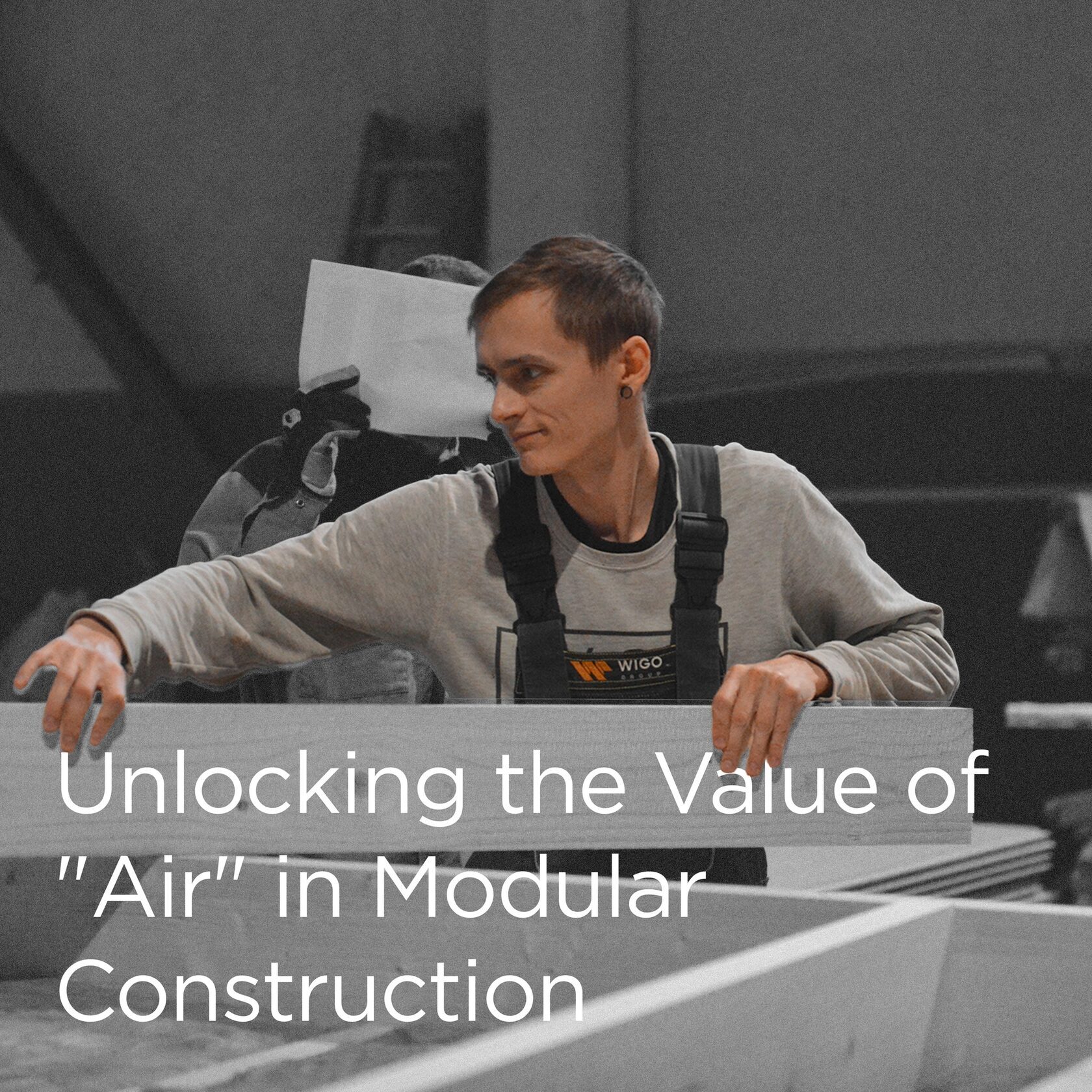Frequently, clients ask, "Why transport air?" Many perceive the empty space in a modular home as just that—air!
Agreed, it's air, but let's clarify—it's the air of a fully assembled home!
Moreover, there are companies like Brette Haus producing transformer homes, where modules nest within each other, eliminating the need to transport any air.
All the work traditionally done on-site, such as frame installation, insulation, plumbing, ventilation, electrical work, and finishing touches, is encapsulated in the module shipped to the construction site.
We all know the cost of time, especially delays at the construction site. That "air" is the price of your time.
The "air" delivered by a modular factory helps recover much of the time lost in the conventional construction process, benefiting both builders and developers.
Modular home manufacturing offers a simpler entry into the construction business since most construction skills learned on the job seamlessly transition to the production line of a modular home factory. Time has its value, especially in modular construction. A builder struggling to find workers or subcontractors must understand that their project will inevitably take longer. Only the "air of a finished home" can save it.
The demand for modular buildings is growing faster than the capacity to build new manufacturing facilities. Hence, the market has seen a surge in new modular and compact home manufacturers.
Developers of affordable housing projects and residential complexes can either consider building their modular factory—an idea I find less favorable—or commit to existing and new modular factories for module production.
Agreed, it's air, but let's clarify—it's the air of a fully assembled home!
Moreover, there are companies like Brette Haus producing transformer homes, where modules nest within each other, eliminating the need to transport any air.
All the work traditionally done on-site, such as frame installation, insulation, plumbing, ventilation, electrical work, and finishing touches, is encapsulated in the module shipped to the construction site.
We all know the cost of time, especially delays at the construction site. That "air" is the price of your time.
The "air" delivered by a modular factory helps recover much of the time lost in the conventional construction process, benefiting both builders and developers.
Modular home manufacturing offers a simpler entry into the construction business since most construction skills learned on the job seamlessly transition to the production line of a modular home factory. Time has its value, especially in modular construction. A builder struggling to find workers or subcontractors must understand that their project will inevitably take longer. Only the "air of a finished home" can save it.
The demand for modular buildings is growing faster than the capacity to build new manufacturing facilities. Hence, the market has seen a surge in new modular and compact home manufacturers.
Developers of affordable housing projects and residential complexes can either consider building their modular factory—an idea I find less favorable—or commit to existing and new modular factories for module production.
